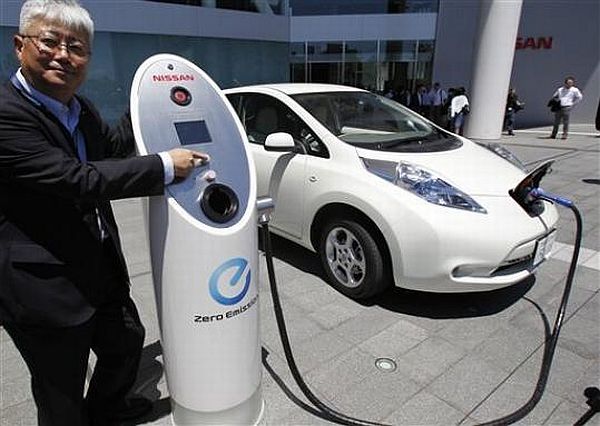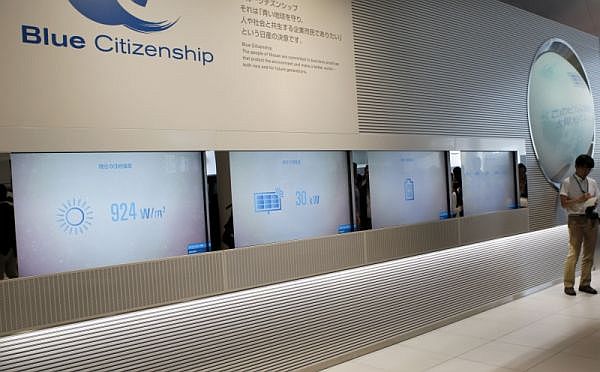
The concept of electric vehicles has been very old, but has caught auto majors fancy after 2007’s global economic recession coupled with sky high oil prices. Japanese auto makers evolved as early birds for new electric technology, and Nissan was one of them with the launch of it’s popular electric car, The Leaf. The car with gasoline equivalent average of nearly 100mpg is hugely popular due to its long range and sporty looks.
But despite of them being completely emission free, EVs used to face critics’ questions as they require electricity to charge and as in majority of cases, electric power is generated by non renewable sources resources like coal and natural gas.This eliminates the whole purpose of driving EV’s because the reduction of emission of green house gases was shifted from automobiles to power plants.
Nissan’s Leaf went on sale last year and according to the company, the Leaf’s battery retains 80 percent of its initial capacity even after scrapping. Thus, with an eye on future, when large number of today’s new batteries will be scrapped, Nissan is planning to provide an alternative for electric storage in the form of Leaf’s batteries. In the same context, Nissan has launched a new prototype charging system in association with 4R Energy Corporation.
The system involves the use of solar cells to charge high capacity Li-ion batteries(96kWh) with each one being the size of one Leaf. The prototype is now under testing at Yokohama headquarters of Nissan, where solar cells installed on the roof top would charge four Li-ion batteries which will be used to charge the vehicles. The system would be capable of generating and storing enough electricity to charge nearly 1800 Leafs annually.
Already there’s a lot of buzz regarding solar and wind power, however the storage of energy by these sources has always been a problem. But with the advent of new charging and storing solutions by the company, the problem is expected to be solved to a large extent and may bring a revolution that would change the way EV’s are charged and used the world over and will make driving an emission free affair. 
The company is much excited about its new storing solutions and is also planning to offer these to residential and commercial establishments. After Fukushima nuclear accident it would not be surprising if the company successfully materializes its plan due to people’s protest against nuclear power which may lead to closure of nuclear plants.
However, now it has to be seen when the company brings out the public version and at what price because that’s going to be an important point for its widespread adoption. If the project fails to meet expectations of people, development and installation of new infrastructure for charging electric vehicles would once again continue to be the biggest challenge for increase in usage of EVs.
Via: Boston




